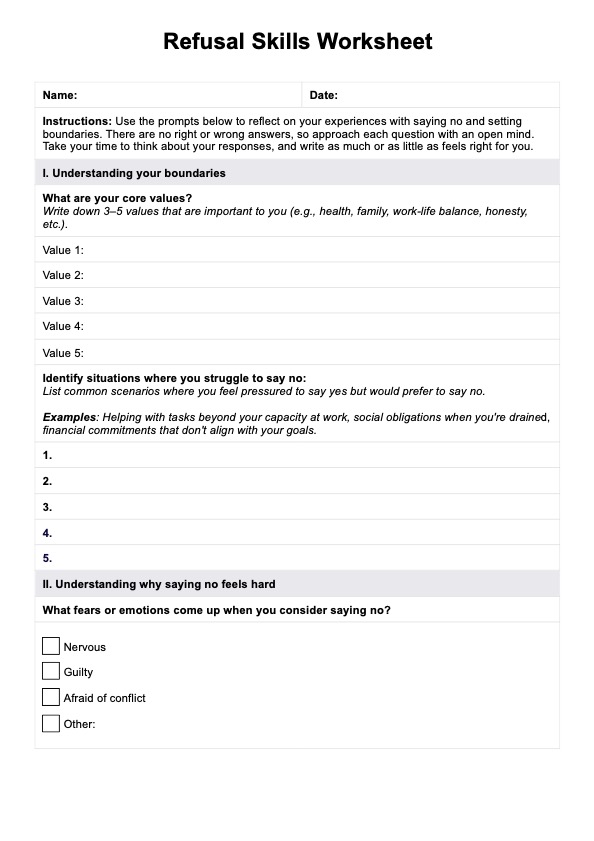The Refusal Skills Worksheet is designed to help young people learn how to effectively assert their boundaries and say no in challenging situations, such as resisting peer pressure. By guiding learners through realistic scenarios and engaging activities, the worksheet supports the development of essential decision-making skills, enabling them to respond confidently and avoid negative consequences.

Refusal Skills Worksheet
Use our Refusal Skills Worksheet to help clients build confidence and develop the ability to say no respectfully while maintaining healthy boundaries.
Refusal Skills Worksheet Template
Commonly asked questions
The worksheet emphasizes the vital role of saying no in managing requests and maintaining healthy relationships. It provides instructions and strategies for individuals to practice refusal strategies, helping them assert their needs in a respectful and positive way, whether dealing with friends, peers, or authority figures.
Role play is a powerful activity featured in the worksheet, enabling individuals to practice refusal skills in scenarios relevant to their experiences, such as peer pressure, drugs, alcohol, or sexual activity. By acting out responses, learners can develop a plan, build confidence, and gain a deeper understanding of the impact of their words when making decisions under pressure.
EHR and practice management software
Get started for free
*No credit card required
Free
$0/usd
Unlimited clients
Telehealth
1GB of storage
Client portal text
Automated billing and online payments











